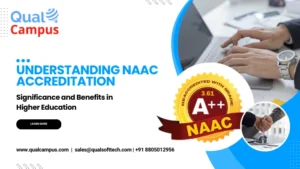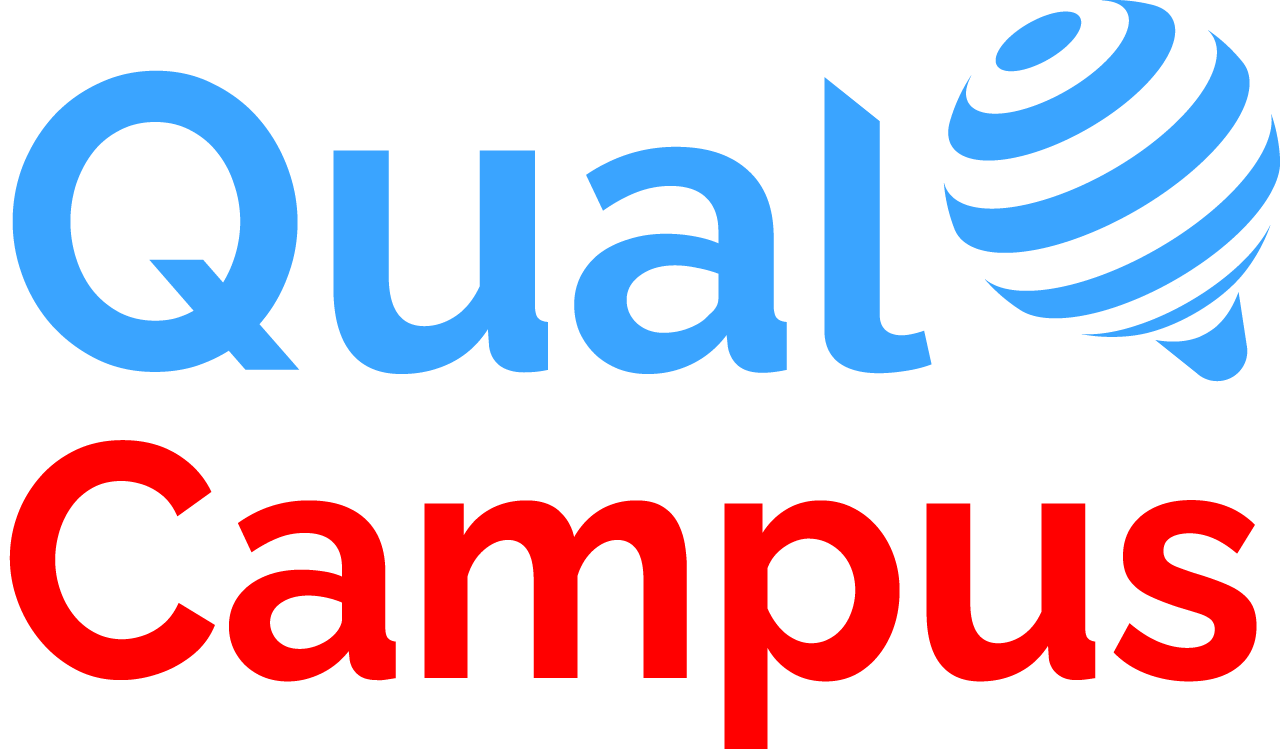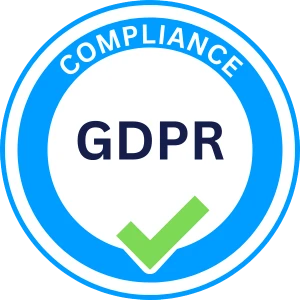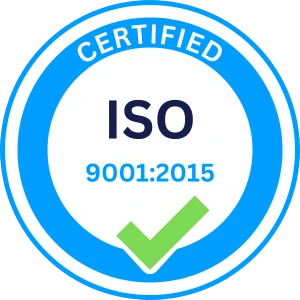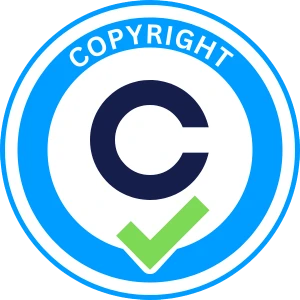Hey, if you are searching for What is a Learning Management System or LMS? You are on the right path. In this article, you get all the pieces of information about What LMS is. What are its features, and how is it beneficial for students as well as for educational organizations?
Let’s start with What is LMS?
Table of Content
What is Learning Management System (LMS)?
Advantages of LMS
What is there for the Faculty/Teacher in LMS
What is there for the Students in LMS
What is there for Admin & Management in LMS?
Types of LMS
Features to look for while selecting LMS
Conclusion
Where can you find the Best LMS (Learning Managment Software)?
What is Learning Management System (LMS)?
In simple words, a Learning Management System is software using which Teachers, Students, and Institutions create an ecosystem wherein learning is made easy, may it be traditional(on-premises), online, hybrid, or distance education.
In the rapidly evolving landscape of education, technology has taken center stage, transforming the way learning and teaching are carried out. A Learning Management System is a software application designed to streamline, manage, and enhance the delivery of educational content and courses in a digital format. It serves as a virtual hub for educators, students, and administrators, enabling them to interact, share resources, and engage in a collaborative learning environment.
LMS platforms offer a wide array of features, including course creation and management, content delivery, assessment tools, communication channels, and reporting capabilities. This technological solution has proved to be invaluable, especially in the context of distance learning, where traditional classroom settings have been replaced by digital classrooms.
To know about QualCampus Learning Management System
Advantages of LMS
Implementing an LMS brings forth a multitude of benefits that contribute to an enriched educational experience for all stakeholders involved.
Flexibility and Accessibility: One of the primary advantages of an LMS is its flexibility. Both educators and students can access course materials and resources anytime, anywhere. This flexibility is particularly beneficial for learners who have diverse schedules and commitments.
Centralized Content Management: LMS platforms offer a centralized repository for educational content, making it easier for educators to organize and update their materials. This ensures that students have access to the most up-to-date resources.
Engaging Learning Environment: LMS platforms often include interactive elements such as quizzes, multimedia presentations, discussion forums, and collaborative projects, enhancing student engagement and participation.
Personalized Learning: LMS systems can provide personalized learning paths for students based on their learning styles, progress, and preferences. This individualized approach enhances the effectiveness of education.
Efficient Assessment and Feedback: LMS platforms offer tools for creating and administering assessments, quizzes, and assignments. These systems also allow for automated grading and timely feedback, which accelerates the learning process.
Data-Driven Insights: LMS platforms generate valuable data on student performance, participation, and engagement. Educators and administrators can use this data to identify areas for improvement and make informed decisions.
Here are the key advantages of LMS
- Increases student and faculty engagement and performance
- Faculty and Students save a lot of time
- Tracking the progress of the Students is much easier
- Students can learn at their own pace
- Expenses of Classrooms, other facilities, and resources are minimized.
- Faculty can create and deliver online courses
- Increases transparency, communication, and collaboration
- Helps in analyzing gaps in learning and remedial planning for individual students and overall class.
What is there for the Faculty/Teachers in LMS:
For educators, LMS platforms are a set of tools that streamline teaching processes, foster effective communication, and elevate the overall quality of education delivery.
Course Creation and Management: LMS platforms enable educators to design and structure courses, organize content, and manage the learning journey for students.
Resource Sharing: Educators can upload a variety of resources, including lecture notes, presentations, videos, and supplementary materials, making them easily accessible to students.
Assessment Tools: LMS platforms facilitate the creation and administration of assessments, quizzes, and assignments. They also provide automated grading and feedback options.
Communication Channels: LMS platforms offer communication tools like discussion forums, chats, and messaging systems, promoting seamless interaction between teachers and students.
Progress Tracking: Educators can monitor students’ progress, identify struggling learners, and provide targeted support through data-driven insights.
What is there for the Students in LMS:
Students stand to gain immensely from the integration of LMS platforms into their educational journey.
24/7 Accessibility: LMS platforms ensure that students can access course materials, resources, and assignments at any time, enabling them to learn at their own pace.
Engaging Content: The interactive nature of LMS platforms makes learning more enjoyable and captivating, catering to different learning styles.
Collaborative Learning: Discussion forums and collaborative projects on LMS platforms promote peer interaction and knowledge sharing.
Instant Feedback: Students receive prompt feedback on assessments and assignments, allowing them to identify areas for improvement and enhance their understanding.
Self-Paced Learning: LMS platforms facilitate self-paced learning, enabling students to revisit challenging topics and spend more time on areas that require deeper understanding.
What is there for Admin & Management in LMS?
LMS platforms offer substantial benefits to administrators and management teams, streamlining operations and enhancing decision-making processes.
Centralized Management: Administrators can manage various aspects of the educational institution, including user accounts, courses, and resources, from a centralized dashboard.
Enrollment and Registration: LMS platforms simplify the enrollment and registration process for students, making it more efficient and user-friendly.
Data Analysis: Administrators can access data on student performance, engagement, and course effectiveness. This information aids in making informed decisions to improve the quality of education.
Resource Allocation: LMS platforms help optimize resource allocation by identifying popular courses, underutilized materials, and areas that require additional investment.
Scalability: Institutions can easily scale up their educational offerings by adding new courses or expanding their online presence through LMS platforms.
Types of LMS
There are several types of LMS platforms available, catering to different educational needs and preferences:
Open-Source LMS: These platforms are free to use and highly customizable. Moodle and Canvas are popular examples of open-source LMS systems.
Cloud-Based LMS: Cloud-based LMS platforms offer easy accessibility, automatic updates, and reduced IT infrastructure requirements. Google Classroom and Blackboard Learn fall into this category.
Self-Hosted LMS: Institutions that prefer more control over their LMS often choose self-hosted solutions, where the software is installed on their servers. This option provides greater customization but requires IT expertise for management.
Mobile Learning Apps: With the proliferation of smartphones and tablets, mobile learning apps have gained traction. These apps offer on-the-go learning and engagement.
Features to look for while selecting LMS
Choosing the right LMS platform involves considering various features that align with the institution’s goals and requirements:
User-Friendly Interface: An intuitive interface ensures ease of use for educators, students, and administrators.
Content Creation Tools: Robust tools for creating and organizing course content, including multimedia integration, are essential.
Assessment and Grading: Look for tools that facilitate various types of assessments and automate grading processes.
Communication Channels: Effective communication tools, such as discussion forums and messaging systems, promote interaction among users.
Analytics and Reporting: Data analysis tools provide insights into user engagement, performance, and course effectiveness.
Integration Capabilities: The LMS should seamlessly integrate with existing software and tools used by the institution.
Secure & Safe: No one can debate the importance of data privacy and cyber security. The LMS must provide both.
Now you know What things must be there in the LMS. While you are going to select a Learning Management System for your educational institute, you must consider all the mentioned features in this article.
Now, it’s time to find the best ERP or LMS for your institute. The answer is “QualCampus” All-in-one ERP, LMS & CRM Software Solution for Higher Education Institutes.
Let’s see How?
Conclusion
The Learning Management System has emerged as a transformative tool in the education sector. It empowers educators, engages students, and enables administrators to optimize operations. As technology continues to advance, LMS platforms will likely evolve further, shaping the future of education in exciting and innovative ways.
Whether you’re an educator seeking effective teaching tools, a student aiming for a more flexible learning experience, or an administrator looking to enhance institutional efficiency, the Learning Management System has something valuable to offer.
Where can you find the Best LMS in the Market?
When it comes to finding Learning Management System (LMS), you have several options available. While many ERP providers offer LMS solutions, QualSoft stands out as one of the leading brands renowned for providing exceptional ERP solutions. Our comprehensive range of offerings includes features such as Fees Management, Customer Relationship Management, Admission Management, Exam Management, Online Class Management, Student Training & Placement Management, and a top-notch Learning Management System.
If you’re considering implementing or upgrading your existing ERP system in your educational institution, whether it’s a University, College, School, or group of institutions, look no further than QualCampus. With our cutting-edge ERP solution, you can streamline your administrative processes, enhance collaboration, and provide a seamless learning experience for your students. QualCampus is your ultimate one-stop solution for all your ERP needs in the education sector.
For the Demo:
- Visit our QualCampus Inquiry portal
- Call us at +91-8805012956
- Or Mail us at sales@qualsofttech.com




